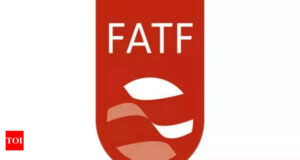ISLAMABAD: Amid a ban on unregistered virtual private networks (VPNs) across Pakistan — allegedly aimed at preventing their use by militant groups for financial transactions and violent activities — Pakistan Telecommunication Authority (PTA) has launched a registration process for companies and freelancers to use their VPNs.
The nationwide ban, imposed on interior ministry’s direction on Friday, has been widely viewed by observers and critics as a joint attempt by the govt and military to silence dissenting voices.
Media sources have also suggested that the slowdown in internet speeds across Pakistan is linked to the govt’s installation of a national firewall. The firewall was deployed as Pakistani military faced severe online criticism for its alleged role in keeping former PM Imran Khan behind bars, while his party, Pakistan Tehreek-i-Insaf, continued to face a harsh crackdown. The military, which denies interference in politics, has recently begun using the term “digital terrorists” to describe online critics.
VPN usage has surged in Pakistan as users seek access to X (formerly Twitter), a platform blocked since February, along with numerous other websites. Authorities also claim that VPN software is being used to bypass restrictions on pornographic content.
PTA said it had streamlined the VPN registration process for organizations and freelancers. Entities such as software houses, call centres, banks, embassies, and freelancers can now register their VPNs online through the PTA’s official website. The registration process is divided into four distinct categories: companies, freelancers, call centres, and video conferencing.
“To date, more than 20,000 companies and freelancers have successfully registered their VPNs through this efficient process,” PTA said in a statement on Saturday.
According to PTA, the registration process involves completing an online form and providing basic details, including the national identity card number, company registration details, and taxpayer status. Freelancers must also submit proof of their association with a project or company, such as a letter or email confirmation.
Also, applicants will need to provide an IP address for VPN connectivity. A fixed IP address can be obtained through internet service providers.
After interior ministry circulated its letter calling for the VPN ban, Council of Islamic Ideology, a constitutional advisory body tasked with ensuring laws align with Islamic principles, declared VPN usage to be “un-Islamic” in a statement issued the same day.
“The government and the state have the authority, from an Islamic perspective, to prevent all actions that lead to wrongdoing or facilitate it,” council’s chairman, Raghib Hussain Naeemi, was quoted as saying. “Therefore, measures to block or restrict access to immoral and offensive content, including the banning of VPNs, are in accordance with Shariah.”




